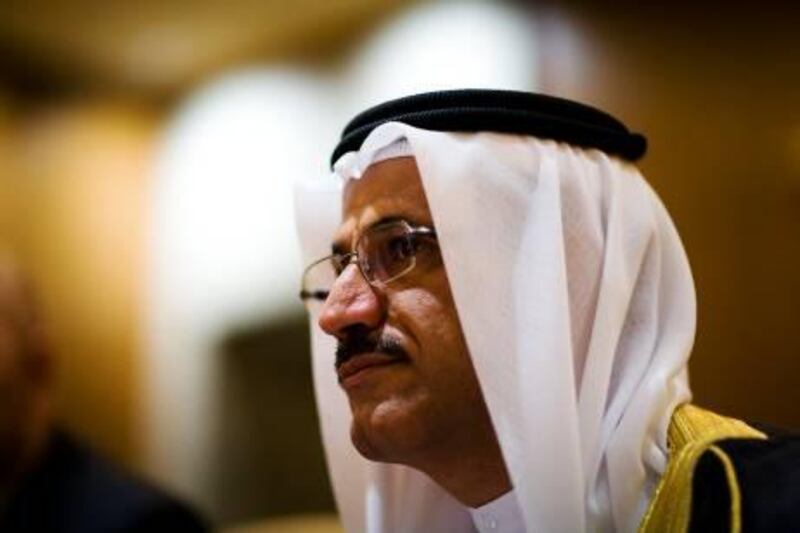ABU DHABI // Global food prices are to be tracked on a central computer database to help to predict potential shortages.
The database will be ready within a year, Sultan al Mansouri, the Minister of Economy, said in a letter to the FNC yesterday.
"It will produce reports on the food situation and expectations in the UAE and other countries," the minister said. "This system will play a crucial role in warning of impending food shortages."
The price of vegetables increased by more than 25 per cent and fruit by more than 20 per cent between September 2009 and September 2010, according to a report by Mr al Mansouri. Sugar rose by almost nine per cent and meat and poultry by almost five per cent.
Mr al Mansouri linked the rise to an increase in the price of oil, and pledged to continue enacting measures to promote food security.
Mr al Mansouri said part of the reason for the rise in consumer prices was the young demographic of the UAE, which tends to consume more.
The minister was responding to a question from the FNC on how the ministry plans to control increases in food prices.
"The country has recently witnessed a rise in prices that has affected all good and services, an issue that requires decisive intervention," Khalid bin Zayed, the member who asked the question, said. "The percentage increase in prices in the UAE exceeds that in the GCC."
In a written response, Mr al Mansouri detailed recent trends in consumer prices and what the Government was doing to curb predatory practices.
He said prices had risen because rapid population expansion fuelled demand, raw materials cost more, and more expensive fuel had increased transport costs.
The UAE had been affected by droughts that hit rice crops in India and wheat in Russia. The country had also increased quality controls for imported vegetables as well as local produce.
The food security strategy centred on a bigger private sector role, Mr al Mansouri said in his report. The ministry is trying to promote investments in the local agricultural sector to increase food production.
The UAE is also looking for new agriculture investment opportunities abroad in countries with low costs of production. These would "guarantee the continuous availability of products with competitive prices" and would help to avoid shortage crises in staple goods", Mr al Mansouri said.
Arrangements were being made with local co-ops to provide food staples at competitive prices, with the co-ops buying directly from suppliers to lower prices and ensure continuity.
The ministry also detailed its efforts to limit unjustified price increases, including reviewing the consumer protection law, penalising vendors who raise prices, outlawing the service charge in restaurants and cafes, conducting field visits and enacting anti-monopolisation measures.
Mr bin Zayed issued a proposal that was adopted by the FNC, which will forward it to the Cabinet. It asks the ministries of energy, economy, finance and environment to develop a plan that would limit the effects of unexpected price rises.
The council's proposals are non-binding.







